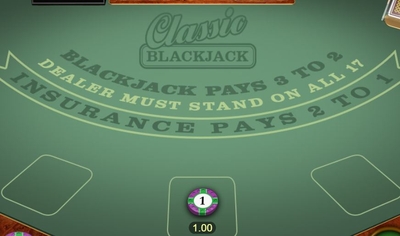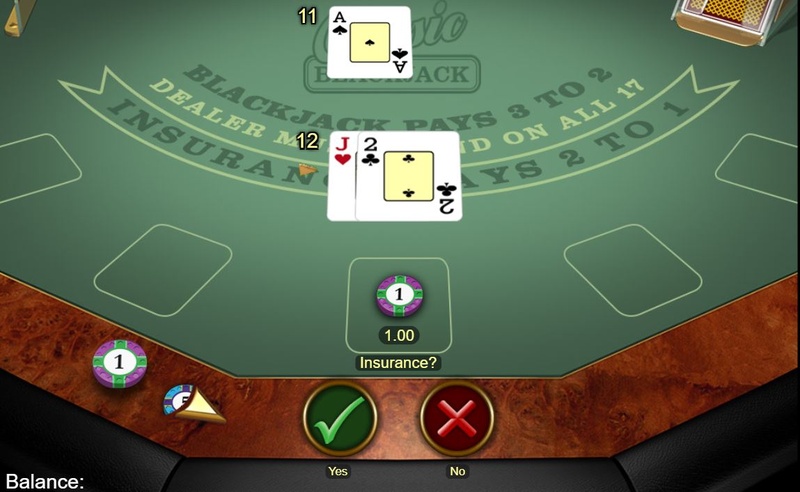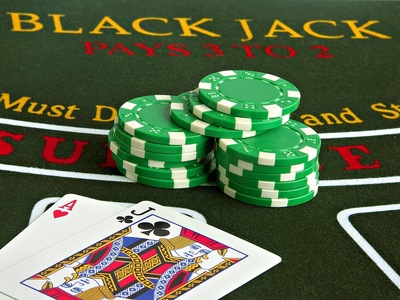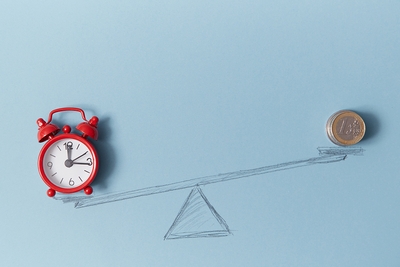 In real life, insurance is one of those things we all complain about having to pay, but we are also extremely glad to have it when it is needed. Of course, knowing when it is going to be needed and when it is not is impossible so choosing to only pay for it when needed is not an option, we are insuring against the unknown.
In real life, insurance is one of those things we all complain about having to pay, but we are also extremely glad to have it when it is needed. Of course, knowing when it is going to be needed and when it is not is impossible so choosing to only pay for it when needed is not an option, we are insuring against the unknown.
In blackjack it serves a similar purpose, but while we would all agree that it’s better to have insurance on your house or car than not, can we say the same for blackjack insurance?
It exists to insure you against the dealer having blackjack, and the option is only available if they are already showing an Ace as their up card so it may seem as though you have a bit of an advantage, but probability suggests otherwise.
How Does the Blackjack Insurance Bet Work?

Insurance is actually classed as a side bet, and it will be available whenever the dealer’s first card is an Ace. The rationale being that this is a dangerous position for the player because if the dealer’s down card is a 10 they have a natural blackjack.
There are many 10 value cards in a game of blackjack so it’s understandable for the player to be a little worried in this scenario and figure that, since the insurance bet pays out at 2:1, it might be a good idea as a hedge.
Usually, the insurance side bet costs half of your original stake, so if you had staked £20 on the hand, insurance would cost you £10, making a total outlay of £30. This leaves three possible outcomes:
- Outcome 1 – Dealer has blackjack so you win the insurance bet, and therefore lose the hand.
- Outcome 2 – Dealer does not have blackjack so you lose the insurance bet and go on to also lose the hand.
- Outcome 3 – Dealer does not have blackjack so you lose the insurance bet and go on the win the hand.
Outcome 1 would mean that you break even, because although you would lose the game and thus your initial £20 stake, you would win your side bet of £10 at 2:1 returning you £30.
Of course, there is no guarantee that you will win the hand if the dealer does not have blackjack, so with Outcome 2 you stand to lose £30 instead of £20 – the worst case scenario.
With Outcome 3, your insurance bet loses because the dealer does not have blackjack and you go on win the hand, so you get £40 back (£20 at 1:1) but you have lost your insurance side bet of £10, leaving you with £30 overall.
All outcomes leave you either even or worse off, so the best you can hope for when taking insurance is essentially a push – it’s impossible to win money by taking insurance.
If playing online the insurance option will pop up on the screen, in a real casino the dealer should offer insurance to each player at the table individually.
Best to say no however it is offered to you.
Why Taking Insurance is a Bad Idea in Blackjack
 The insurance bet is virtually never a good idea, because statistically it is impossible to come out on top.
The insurance bet is virtually never a good idea, because statistically it is impossible to come out on top.
If the dealer has an Ace as their up card and no 10 value cards have been drawn (so they have the highest possible chance of getting blackjack) they will still only hit a natural blackjack around 31% of the time.
We can work this out using a six deck game as an example:
There are 312 cards in the shoe at the start of a 6 deck game, and every deck has 16 cards with a value of 10 in blackjack. That means there are 96 cards in the shoe with a value of 10 before any cards are dealt.
Two cards are drawn to you and two to the dealer, leaving 308 in the shoe in total. Assuming neither of your cards are 10 value cards and that the dealer’s up card is an Ace, there is a 96/308 chance that the dealer’s hole card will give them blackjack. That’s 31.16% to be exact, leaving a 68.84% to play with.
Simplified, it breaks down as approximately 4 in 13 – so for every 13 times the dealer’s up card is an Ace, they will get blackjack four times and the other nine times they won’t.
How Does Insurance Effect Your Bankroll?
 Taking the statistics shown above, we can demonstrate how this would statistically effect your finances.
Taking the statistics shown above, we can demonstrate how this would statistically effect your finances.
If your bet was £20 each game then insurance would cost you £10 each time you took it. Over the 13 hands where the dealer’s up card is an Ace, this would cost you £130 in side bets.
You would statistically win the side bet four times at 2:1, so a £20 return x 4 = £80.
You would statistically lose the side bet 9 times costing you £90 in extra bets. A deficit of £10 overall.
When you think about how many hands you might play an hour, this adds up; the longer you play and take insurance, the more you are likely to lose.
Obviously statistics don’t take variance into account, but there is no way to predict variance so while we can be aware of it we can’t really make decisions based on it.
It is technically possible to win 13 insurance bets in a row, albeit improbable, but it would be blind luck if it happened so it is always better to work with statistics, especially over a large number of hands.
Questions About Blackjack Insurance
Is Insuring a Strong Blackjack Hand a Good Idea?
Your hand isn’t important here. With insurance, you are betting on the dealer’s down card (or card in the hole) being a 10 value card. That’s it. If it is you win and if it’s not you don’t. Your hand is irrelevant. All that matters is the probability of that second card being worth 10.
It might feel worse having a strong hand beaten by blackjack than a weak hand, but that is psychological and doesn’t alter anything in the real world. Go with the statistics.
Should I Take Insurance if I Have Blackjack?
It’s still a no. If you don’t insure and the dealer has blackjack it will be a push, so you don’t lose anything anyway, making insurance a bit pointless. On the other hand if the dealer does not have blackjack you will win at 3:2.
If you take insurance your are just eating into potential profits, because the insurance bet could lose costing you half of your original stake and reducing your payout for a winning blackjack hand.
Why do Card Counters Sometimes Take Insurance?
It’s true that there is an exception to the rule, but the advantage is small and you have to be a very good card counter to make it work.
A card counter keeps a running tally based on the cards that have already been dealt. In situations where they know there are a disproportionate number of 10 value cards still in the shoe they may take insurance.
Card counting comes with its own pitfalls though, not to mention the fact that this scenario wouldn’t occur very often at all.
